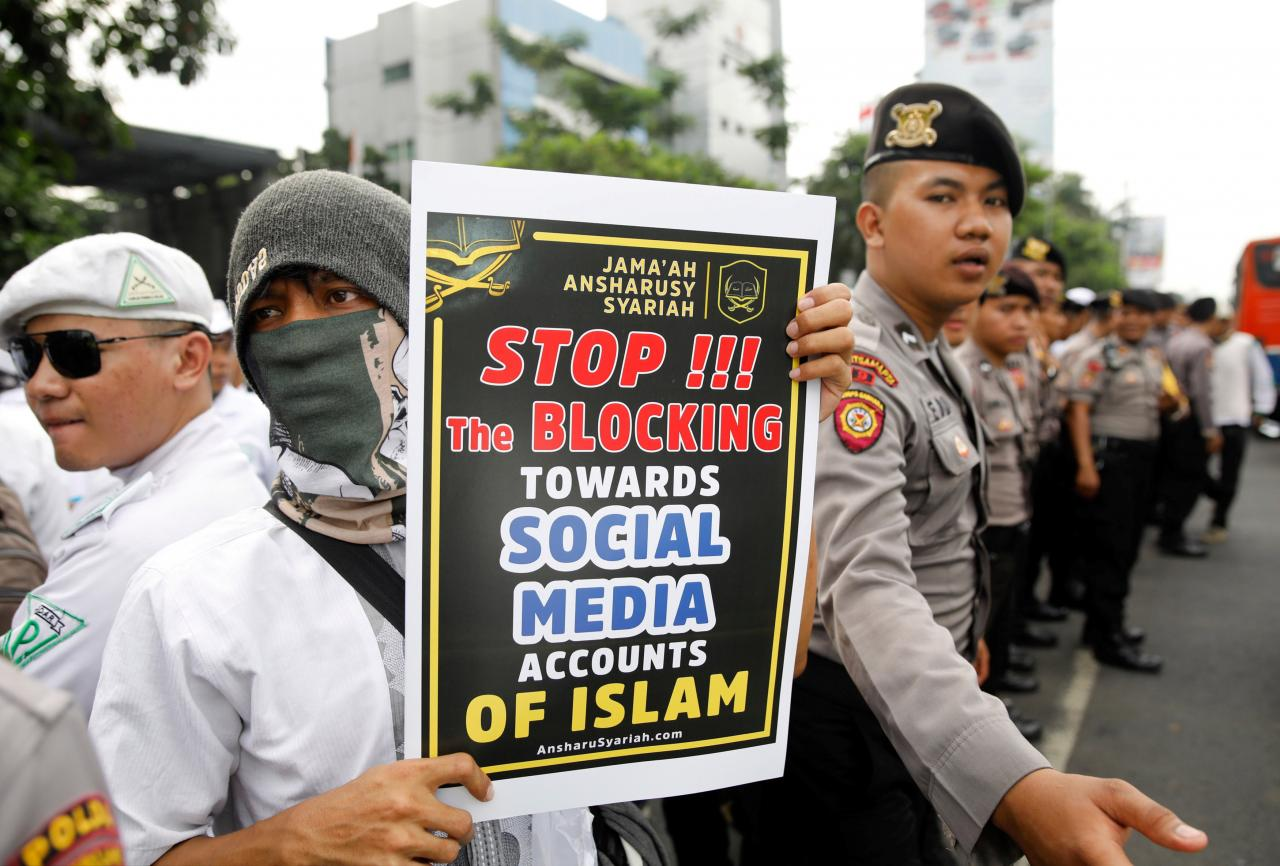TIARA SALVABILLA WRITES – In Indonesia, social media has become the norm of everyday life. People from all sectors of society have a smartphone, tablet, or laptop in-hand. Coupled with affordable data plans, Indonesia has become one of the fastest growing countries for internet use. With a population of over 263 million people in 2017, and almost a quarter of the population having access to the internet, everyone is free to retrieve and share all kinds of information. One of the most popular and important platforms in Indonesia is Facebook.
The Islamic Defenders Front, known as FPI in Indonesia, are extreme Islamists residing in a country well known for its for tolerance of cultural diversity. Indonesia has the largest Muslim population in the world. However, it is ruled by a secular government. Although they make up just a fragment of the population, the FPI has recently become more bold and outspoken.
On January 12, over 200 Muslims protested in front of Facebook’s HQ in Indonesia’s capital, Jakarta, marching straight from a mosque. Protesters were angry at Facebook for blocking Facebook pages and statuses of FPI and its members. They carried signs in Bahasa Indonesia reading, “Don’t oppress Muslims,” “Don’t criticize our Facebook status,” “Stop the blocking of social media accounts of Islam,” and “Stop watching us and being unfair/racist on Islam.”
The spokesman for the FPI claimed that FPI just wants Facebook to be neutral and open to their freedom of expression. They feel as though they are being treated unfairly, as they have seen numerous Facebook accounts that discriminate against Islam, which have not been taken down. Although Facebook did not require for FPI’s account to be removed from Facebook, they did remove content, which is the basis for FPI’s demonstration. Putri Ariani, the spokeswoman for Facebook Indonesia, claimed that they are removing FPI content to discourage hate and violence.
Although the demonstration was peaceful, this instance may foreshadow more dangerous displays from FPI in the future as tensions rise.

